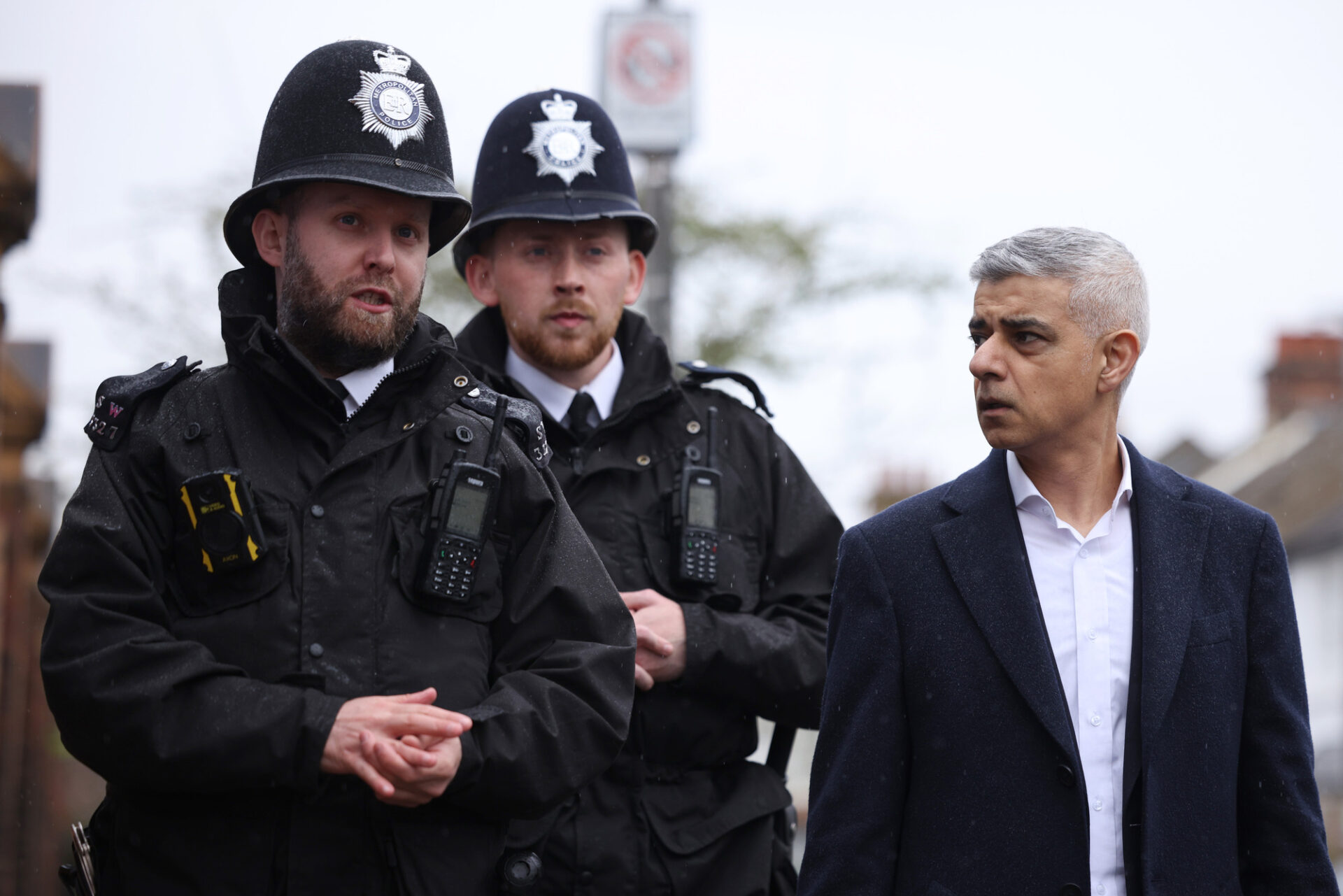This week’s announcement from the Metropolitan Police that 1,700 officers and staff are to be axed from the force, coming so close as it did to April Fool’s Day, must have felt like a bad joke to Londoners. The capital’s Mayor, Sadiq Khan, has confirmed that Scotland Yard will make the cuts to fill a £260 million budgetary blackhole. But in a city where petty crime and violent assaults are on the rise, removing officers from frontline duties seems dangerously out of touch with the reality on the streets.
What makes this latest round of cuts perplexing is a counterintuitive truth: London actually has more police officers per capita today than during the Seventies and Eighties — an era we often assume was over-policed. The current ratio stands at approximately one officer per 275 residents (3.63 officers per 1,000 people), compared with one per 320 residents (3.13 per 1,000) in the Seventies. This gap reveals a fundamental transformation in how London is now policed — and it’s not for the better.
Take Oxford Street, which is now plagued by organised shoplifting rings, counterfeit goods sellers, pickpockets and street gangs who operate with impunity. The New West End Company — a business partnership of 600 UK and international enterprises in London’s West End — reports that retailers lose approximately £30 million annually to theft, while Westminster Council alone has seized over £1 million worth of counterfeit goods from a plague of “American candy stores” since 2021.
Meanwhile, Office for National Statistics and Met Police data recorded a total of 16,583 knife-related incidents — including 63 homicides and 57 attempted murders involving a knife or sharp object — between October 2023 and September 2024, an 18% increase on the previous period. All this occurs as over 100 police stations have closed across London since 2010, with plans to whittle the remainder down to 32 — just one per borough — for a city of nine million people.
The Met and Khan would have us believe that these new cuts stem from funding constraints, yet resources appear abundant for certain priorities. The force deployed up to 1,000 officers daily during the Just Stop Oil protests in 2023, while pro-Palestinian demonstrations have consumed tens of millions of pounds in policing resources. The Met even had the manpower spare to send 57 officers up to a climate demo in Yorkshire last year as part of a nationwide contingent of 1070 coppers costing over £3 million — all to arrest 24 non-violent protestors.
Meanwhile, emergency response times in the capital are lacklustre: the Met is the 13th slowest force in the country when it comes to responding to 999 calls. It can then take anywhere from 11 minutes to two hours for an officer to show up, depending on a call’s severity and location.
Discontent is also rife within the force. In the year to March 2023, a record 4,668 voluntarily quit the Met, while around 3,000 officers are currently on restricted duties. Retention has collapsed, with the attrition rate reaching 9% in 2023 — nearly double the historical average — and 15% of probationers quitting before completing their two-year training. This revolving door costs taxpayers millions, with each new officer costing tens of thousands of pounds to recruit and train.
Patently, quality matters as much as quantity — and here the Met’s record is equally troubling. As of late 2023, over 1,000 officers were under investigation for misconduct, with the force reviewing a tumult of complaints of domestic violence or sexual offences following the case of serial rapist PC David Carrick. The Baroness Casey Review in 2023 identified hundreds of officers who should’ve faced gross misconduct proceedings but didn’t.
London’s policing model has failed to adapt to the city’s evolution. The capital needs a modern police force with a modern mentality, but the Met appears increasingly focused on managing Londoners’ day-to-day behaviour rather than keeping them safe and secure. Digital surveillance expands while neighbourhood policing contracts. Traffic violations generate revenue while violent criminals remain at large. Public confidence has correspondingly plummeted to around 50%, with only about 43% of Londoners believing the Met will treat everyone fairly.
If London is to reverse this decline, it needs more than staffing adjustments: this is the Met and Khan rearranging deckchairs on the Titanic. More necessary is a fundamental rethinking of policing priorities which puts Londoners’ safety and security first. Anything else makes the notion of “policing by consent” laughable.











Join the discussion
Join like minded readers that support our journalism by becoming a paid subscriber
To join the discussion in the comments, become a paid subscriber.
Join like minded readers that support our journalism, read unlimited articles and enjoy other subscriber-only benefits.
Subscribe